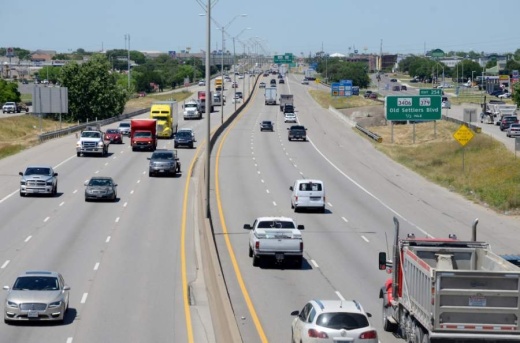The board of Central Texas mayors, county commissioners, city council members and transportation officials voted on those priorities May 4, accepting a list of 539 projects with a total value of $42.5 billion to include in its 2045 plan—from I-35 work happening in the next year to construction on city streets scheduled 20 years down the road.
However, while two members of the 21-member board voted no on adopting the plan—Austin City Council members Jimmy Flannigan and Alison Alter—and Travis County Commissioner Bridget Shea abstained, some board members said they were uncomfortable with parts of the planning process in a three-hour May 4 meeting that at times became contentious.
Flannigan said he would vote no on the plan because there is too much uncertainty. CAMPO staff projected $42 billion available from state and federal sources to fund regional transportation projects in the next 25 years, but Flannigan said the coronavirus pandemic will affect that funding capacity.
“It doesn’t seem like there’s going to be a lot of tax revenue over the next five years—or oil or gas revenue—for road construction,” Flannigan said.
Additionally, the District 6 Austin City Council member said demographic projections that will inform transportation decisions will come into focus after the 2020 U.S. census is conducted, leaving CAMPO with an opportunity to plan more effectively in the 2050 Regional Plan process—scheduled for approval five years from now.
Austin Mayor Steve Adler said including hundreds of projects in the 2045 Plan without prioritization leaves CAMPO without much of a roadmap at all.
“At the end of the day I can vote for this because it doesn’t really do anything,” Adler said before voting yes. “As a planning organization, I think we can do better.”
Travis County Judge Sarah Eckhardt has frequently expressed frustration with CAMPO’s planning process during her time on the board, and that continued May 4 as she sought clarification over an item the CAMPO approved in the fall to prioritize strategies that will limit transportation demand.
“Often folks say I will not let the perfect be the enemy of the good. In this instance, I will not let the good be the enemy of the minimally serviceable,” Eckhardt said.
The May 4 meeting was the last for Eckhardt, who will step down from her position as Travis County judge on May 13 to run for the District 14 Texas Senate seat recently vacated by Kirk Watson.
“My best to CAMPO. I really want to build on our agreement and not on our disagreement, and I often fail at that, but I really do have the intention and all the hope in the world for CAMPO to be a really engaged planning process,” Eckhardt said May 5 at a Travis County Commissioners Court meeting.
The long-range document CAMPO approved May 4 is a separate document from the short-term, four-year plans the board approves, which include projects that have funding and are ready to begin inside a four-year window.
In order to provide $633 million toward a project that will add managed lanes to I-35 through Central Austin, the board is set to defer a list of projects that previously received funding and were scheduled to begin sometime before 2022.
The Texas Transportation Commission voted to devote $3.4 billion of that $4.3 million project April 30. The rest of the funding will come from the money CAMPO diverts from local projects and a separate, $300 million funding decision the commission is scheduled to vote on later this year.





